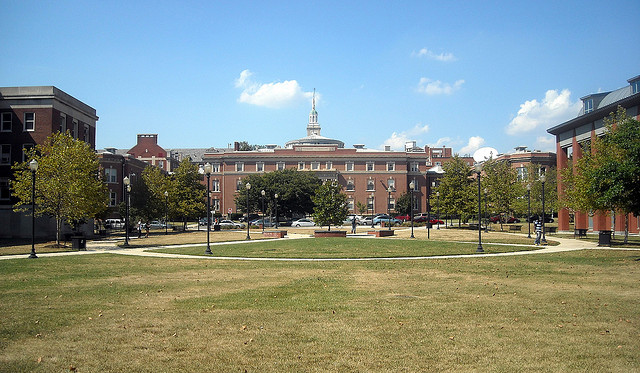
Business is not just about what you know, but who you know. In Silicon Valley, closing a deal is also about who you like and who you trust. Historically black colleges and universities have struggled to build those familiar, trusting relationships with tech firms, but the United Negro College Fund is helping change that. This week officials from 17 schools came to Palo Alto for a four-day Innovation Summit in hopes of laying new foundations for their graduates’ careers.
According to UNCF, African-Americans get 21 percent of their science, technology, engineering and math degrees from historically black colleges and universities (better known as HBCUs). These institutions, however, are only 4 percent of the nation’s colleges, and none of them is in California. So it’s easy to see why Berkeley and Stanford alumni have a geographic advantage in getting internships, jobs and startup funding. The summit was the first step in starting conversations that will broaden that advantage to populations that haven’t typically had it.
“If you just allow the market to take shape as it would, you’ll tend to go and find people that you’re most familiar with,” said College Fund senior vice president Karl Reid. “What these conversations do is… foster the kind of relationships that are necessary for the HBCU community… to make the connections with these kinds of innovative environments.”
It’s hard to say exactly how many African-Americans, Hispanics and other people of color work in Silicon Valley. Some of the largest companies have solidly resisted efforts to get their demographic data. There are a number of black HBCU graduates leading major tech firms, including Symantec’s former CEO John Thompson (he went to Florida A&M University in Tallahassee, Fla.) and Art George, a senior VP at Texas Instruments (he attended Southern University in Baton Rouge, La.). Some executives are reaching out on their own, including Facebook’s COO Sheryl Sandberg. She launched her women’s business initiative “Lean In” at Howard University, a school in Washington D.C. often referred to as the “Black Harvard.” HBCU graduates take pride in the collegiate experience they get: a transformational education that instills a connection to history and a duty to serve.
“There is not only the intellectual development,” said Reid, “but the sense of who they are and a sense of purpose that comes in. Almost a calling, a belief that they’ve gotta ‘lift as they climb’.”

